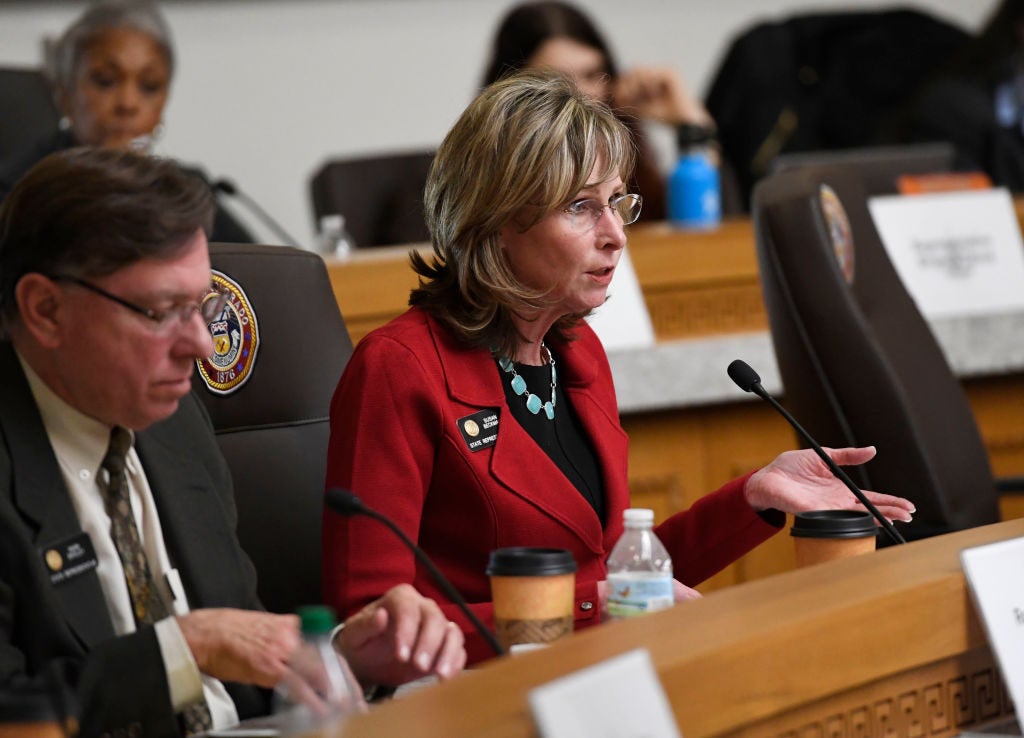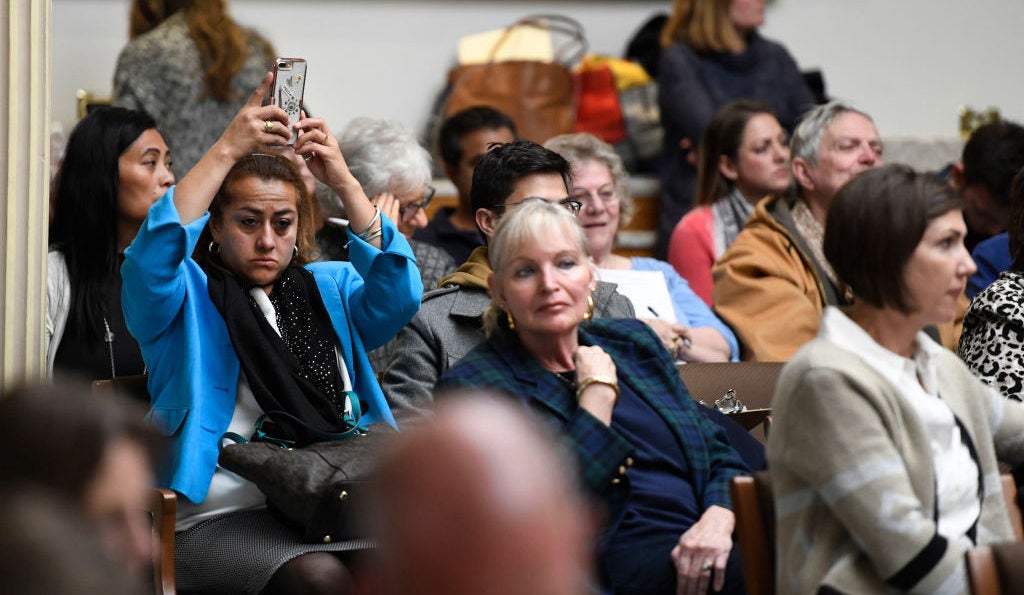Colorado’s wildly controversial, comprehensive sex ed legislation has ignited national discussions about how far Americans want to expose their children to a radical social agenda.
More than a few eyebrows were raised when Colorado passed its mandatory comprehensive sex education law in 2013, which required students undergo “culturally sensitive” lessons.
“Culturally sensitive” meant that sex ed lessons would incorporate minority perspectives on sex that had not previously been represented in sex-ed—including LGBT individuals, but also other groups. (In practice, this meant teaching and affirming more diverse kinds of sex.)
Though many parents were concerned, those concerns were appeased by the fact that students could discuss their moral, ethical, and religious beliefs on sex and sexuality in the classroom. It also allowed some schools to be excused from provisions of the law, if requested.
Yet, just five years later, Colorado’s Democrat-controlled General Assembly thinks the 2013 law is no longer good enough to address the sexual education of teens.
Enter HB 1032.
HB 1032 would do away with all the “concessions” included in the 2013 law and would specifically prohibit religious, moral, and ethical perspectives on sex from being discussed in the classroom.
The bill demands that schools teach about the relational and sexual experiences of LGBT teens. It would forbid any emphasis on abstinence and sexual-risk avoidance as the only foolproof method against pregnancy and sexually transmitted diseases, and even declares that saying so in the classroom is against the law.
HB 1032 would strip teachers, administrators, and school boards of the ability to choose the content of their comprehensive sex ed curriculums and would no longer allow schools to be excused from the requirements of the bill.

The bill is almost militant in its stringent requirements and prohibitions, thoroughly censoring the speech of teachers and crushing parental rights and religious freedom in the classroom.
Currently, only two states in the country (California and Louisiana) prohibit schools from speaking about religious beliefs regarding sex. The majority of states—including Colorado currently—allow abstinence to be stressed or emphasized to teens as the only foolproof method against sexually transmitted diseases and pregnancy.
Yet, HB 1032 would flat-out ban speech that suggests abstinence is the best and healthiest choice. That’s despite the fact that the majority of American teens are choosing abstinence, and Colorado teens have a lower rate of sexually transmitted diseases and unwanted teen pregnancies than the national average.
HB 1032 would flat-out ban speech that suggests abstinence is the best and healthiest choice.
Prohibiting emphasis on abstinence isn’t the only instance of the Colorado Legislature attempting to place words into the mouths of teachers and ideology into the hearts of our children. HB 1032 would also require that teachers who discuss pregnancy outcomes, like adoption and parenting, also discuss abortion.
If passed, Colorado would become only the third state in the country to have that, after Vermont and California.
Clearly, the vast majority of American parents, teachers, and schools believe adoption and abortion are not morally or ethically equivalent options. The bill brazenly refers to teaching abortion as an example of “objective, unbiased” instruction, despite abortion being one of the most contentious issues of our time.
>>> California Parents Object to New Sex Ed Program in Public Schools
It probably comes as no surprise that Planned Parenthood lobbies across the nation for comprehensive sex education bills to be enacted, and Colorado was no exception.
It certainly isn’t coincidence that Planned Parenthood is one of the world’s largest providers of comprehensive sex education materials in the world, peddling radical content that even the most liberal among us might find too shocking for our taste.
Planned Parenthood’s ready-made sex education curriculum just happens to fit the exact requirements HB 1032 would impose on local school districts. Its materials often promote virtually any type of sexual exploration and experimentation as a “safe and healthy” part of any relationship, no matter the child’s age or biological sex, just as long as you “say yes.”
Planned Parenthood’s ready-made sex-education curriculum just happens to fit the exact requirements HB 1032 would impose on local school districts.
That last point is certainly the provision of Colorado’s sex education bill that garnered the most heartfelt protests from parents during the 20-odd hours of public testimony. Parents tend to take issue with the government mandating teaching elementary school students the definition of “consent.” They already know the answer.
In Colorado, as in most other states, the definition of consent for elementary students is: Illegal. Criminal. Unsafe.
Parents have been rightfully confused on how teaching young children about consent could possibly protect them from predators. How did decades of “No Means No!” education become upended to be “Yes Means Yes”?
Young children are certainly capable of voluntarily saying the word “yes” to acts that might feel good but are nonetheless deeply harmful and traumatic. It is a parent’s job to protect their children from an agenda that has shifted sex education dialogue from being one of protection to one of pleasure, from prevention to gratification.

Unfortunately, HB 1032’s sponsors and supporters have downplayed the tens of thousands of parents clamoring for the bill to die as well as the national dialogue the bill has ignited on how parents can guard their children’s hearts and minds in today’s schools.
HB 1032 has already been passed through a state House committee, the House floor, and its first state Senate committee, despite the overwhelming outcry. The bill is currently being considered in a Senate fiscal committee, which will soon vote on whether $1 million will be allocated from the general fund to schools to help them pay for implementing the burdensome legislative requirements.
If passed out of committee, the full Senate will vote on the bill, and then it will be off to the desk of Colorado’s openly gay governor, Jared Polis, for signature.
It is a parent’s job to protect their children from an agenda that has shifted sex-education dialogue from being one of protection to one of pleasure, from prevention to gratification.
Families in states such as Arizona, Massachusetts, and Texas are fighting controversial provisions similar to Colorado’s. Tennessee, Alaska, Idaho, and other states are taking proactive measures to ensure family values are respected in the classroom.
Washington state parents recently took a page from Colorado parents’ book and successfully stopped their own appalling comprehensive sex education bill, as did parents in New Mexico.
But the threat isn’t limited to state legislatures. The U.S. House of Representatives will be voting soon on the deceptively named “Equality Act,” which could lead to federal courts ordering schools to implement curriculums on sexual orientation and gender identity.
We hope the outcry in Colorado continues to encourage parents in other states around the country to stay informed about what’s being taught in their children’s classrooms—and to do everything they can to protect their children from harmful ideology.





























